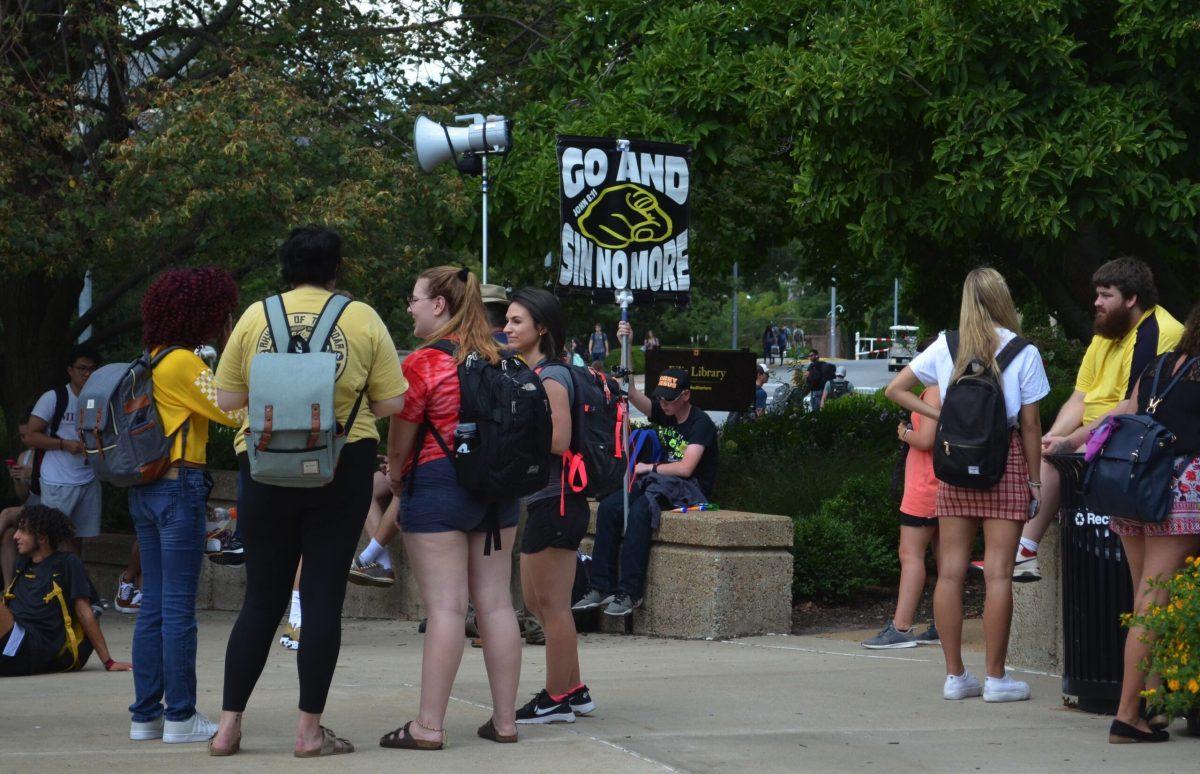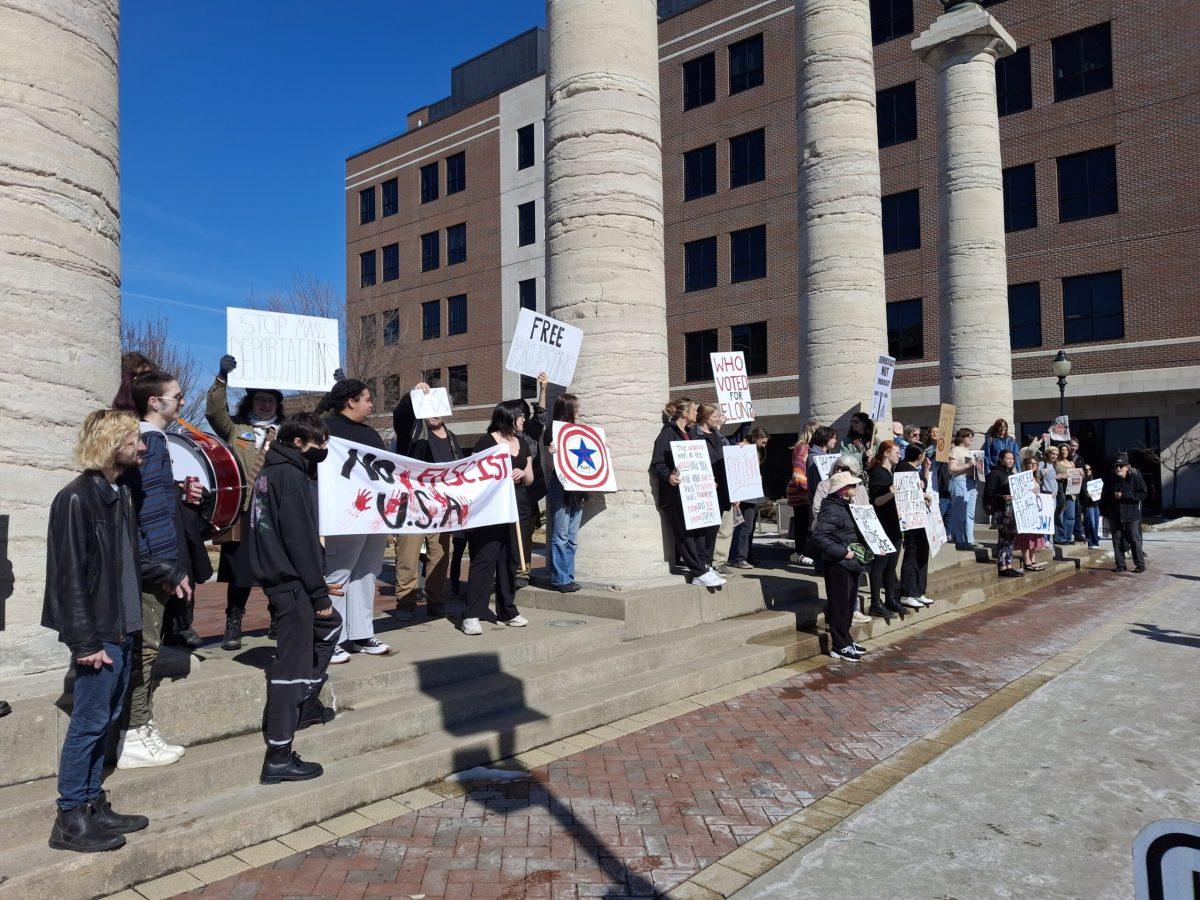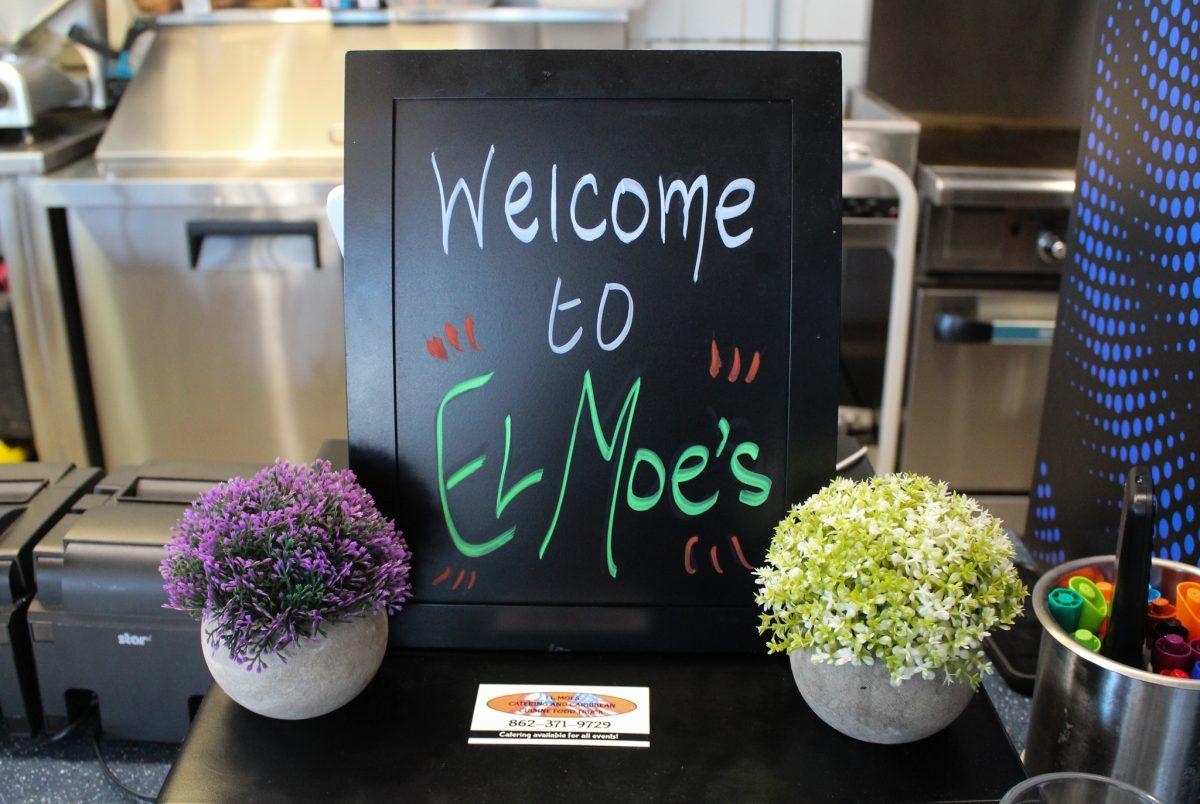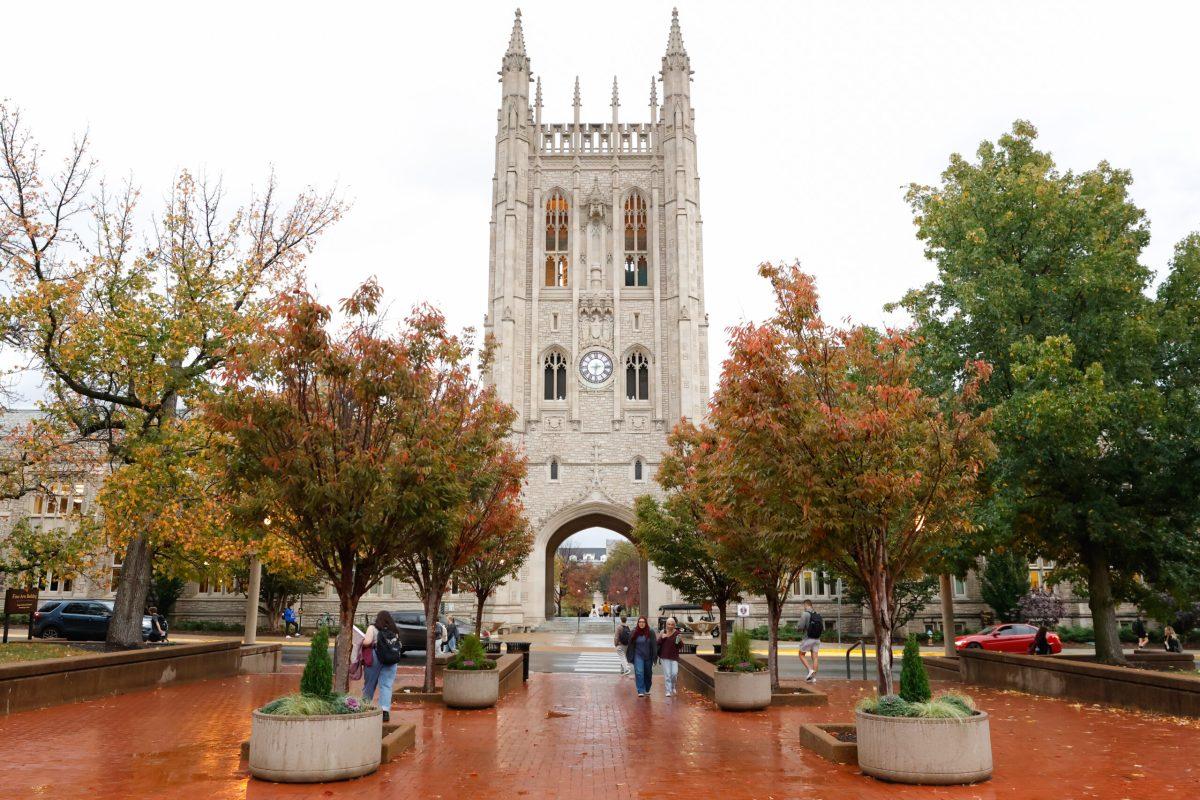Throughout the first few weeks of classes at MU, it is not uncommon to find crowds of students gathered around controversial speakers in Speakers Circle. While their messages can stir up the crowds to shout back in opposition, it also illustrates the freedom of speech that MU allows.
According to the [Guiding Principles of Free Expression at Mizzou](https://freespeech.missouri.edu/principles/) found on the university’s website, speakers cannot be excluded based on expressing an opinion that is offensive to some listeners, even if it involves vulgar language.
“The standards cannot be implemented in a manner that prohibits speech that is disturbing because of its content, merely annoying, outrageous to some listeners, or disruptive in some respect that falls short of impairing the ordinary and normal functions of the university,” the principles state.
During the week of Aug. 19, “Sister” Cindy Smock appeared in Speakers Circle and drew large crowds of students while preaching against the “party animals” of MU and urging students to turn to Jesus Christ.
“Stop acting like party animals … I am here to slut-shame,” Smock said on Aug. 22.
Freshman journalism major David Tallant witnessed Smock speaking and passionately defended his own beliefs back at her. Despite his disagreement with her controversial ideas, Tallant believes that speakers like Smock are not violating any policies regarding freedom of speech.
“Everyone should have a voice, including Sister Cindy,” Tallant said. “Even though she said things that were repulsive to me and I hated them … I think she definitely has a place and she deserves to speak.”
Under Missouri Law, “The outdoor areas of campuses of public institutions of higher education in this state shall be deemed traditional public forums,” according to Missouri Revisor of Statutes 173.1550. However, public institutions of higher education can clarify times and locations where the expression of ideas is allowed.
For instance, MU does not allow expressive activities at hospitals, health care facilities, any space where a private meeting is being held, and any locations that disrupt university functions, to name a few. [The Business Policy and Procedure Online Manual](https://bppm.missouri.edu/policy/use-of-facilities/) includes a full list of these restrictions.
Another point outlined in the guiding principles prohibits using or making a “true threat” of harming or injuring an individual or group of individuals.
“Behaviors such as defacing a sign, assaulting or threatening to assault a speaker, or assaulting or threatening to assault a member of the audience are never appropriate,” the principles state.
Kameron Farris, a freshman business marketing student, witnessed Smock’s preaching and feels that her approach was not respectful.
“Whenever you start harassing students, which is exactly what [Smock] was doing, she was harassing students, but whenever … they start to harass or persecute the students I feel like their rights should be taken from them until they realize [that] wasn’t okay,” Farris said.
In Tallant’s opinion, people have such diverse ideas and backgrounds that it is difficult to distinguish between what ideas should and should not be allowed on campus.
“I don’t think I deserve to be able to draw that line, to say this is allowed this isn’t allowed,” Tallant said.
According to Public Safety Information Specialist of MUPD Sara Diedrich, there has not been an incident in the past year of the MUPD having to restrict a speaker on campus.
Students have some restrictions on what behavior is appropriate and not appropriate when responding to a speaker at an event.
“Chanting, persistent heckling, making other sustained or repeated noise in a manner that makes it difficult or impossible to hear what the speaker is saying, or substantially interfering with the speaker’s communication with the audience is not acceptable,” the guiding principles state.
Austin Dooley is a former graduate of MU and spoke on campus on Aug. 28 urging students to have faith in Jesus Christ to “set [them] free from sin.” He appreciates the freedom of speech rights at MU and believes they are reasonable.
“Of all places in America, [a university] is the place where we ought to be able to have interactions about ideas,” Dooley said. “As long as there’s not violence [and] that kind of harm being done, I think this is a place where we can handle it.”
_Edited by Laura Evans | [email protected]_













